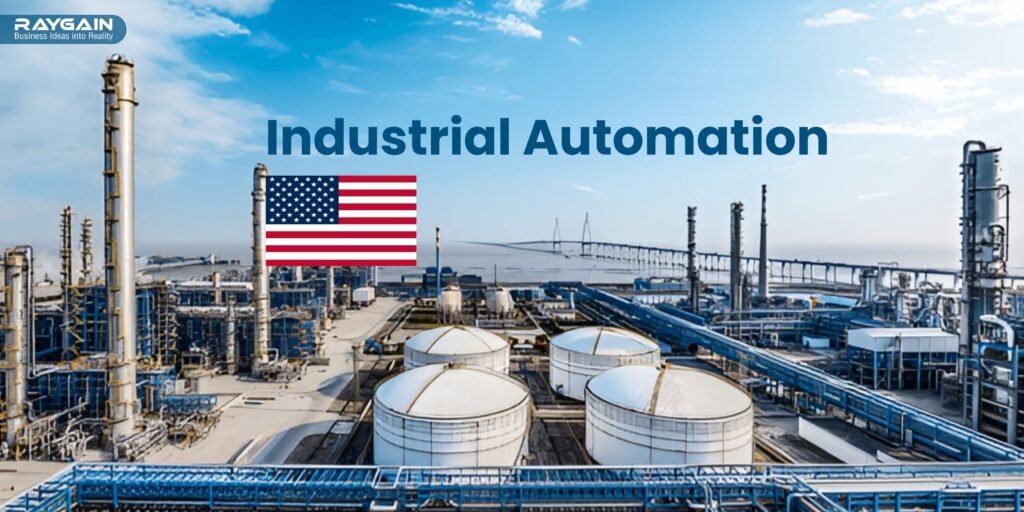In the rapidly evolving landscape of modern industry, the push toward automation has become more than a trend—it’s a competitive necessity. With technological advancements driving operational efficiency, industrial automation in USA enables businesses across sectors to enhance productivity, reduce costs, and stay ahead in the global market. From manufacturing to logistics and energy, American industries increasingly embrace innovative technologies that streamline processes and deliver measurable results.
What Is Industrial Automation?
Industrial automation uses control systems, machinery, and information technologies—such as robotics, artificial intelligence (AI), and the Internet of Things (IoT)—to manage and operate manufacturing and other industrial processes with minimal human intervention. In the USA, this transformation is empowering companies to move beyond manual labor and outdated systems, embracing intelligent solutions that deliver speed, consistency, and innovation.
Top Benefits of Industrial Automation in USA
1. Increased Productivity
One of the most compelling reasons for adopting industrial automation in USA is the dramatic boost in productivity. Automated systems can operate 24/7 without fatigue, enabling round-the-clock production and minimizing downtime. Tasks that once took hours can now be completed in minutes, helping companies meet increasing demand efficiently.
Automation also accelerates production timelines by eliminating repetitive manual processes. This means faster turnaround times, higher throughput, and improved output quality—an essential edge in today’s fast-paced market.
2. Cost Efficiency
Although the initial investment in automation technology may seem substantial, the long-term cost savings are significant. Automated systems help reduce operational costs by minimizing labor expenses, decreasing errors, and reducing waste.
Businesses that integrate industrial automation into their workflows can also optimize energy use and raw material consumption—further enhancing cost control. Over time, the return on investment (ROI) far outweighs the upfront cost, especially when considering the scalability of these technologies.
3. Improved Quality and Precision
Consistency and accuracy are key in pharmaceuticals, automotive, and electronics industries. With industrial automation in USA, companies can achieve higher precision in their operations. Machines follow predefined processes with zero deviation, significantly reducing the risk of human error.
Advanced automation systems can detect and correct defects in real time, ensuring that only high-quality products are available. This leads to fewer returns, greater customer satisfaction, and a more substantial brand reputation.
4. Enhanced Safety for Workers
Safety is a top priority for American companies, especially those operating in high-risk environments. Automation reduces the need for human workers to perform dangerous tasks, such as heavy lifting, working with hazardous materials, or operating in extreme temperatures.
By minimizing human exposure to unsafe conditions, companies can significantly reduce workplace injuries and improve safety compliance. This protects workers and helps companies lower insurance premiums and avoid costly legal liabilities.
5. Access to Real-Time Data and Insights
Modern industrial automation systems come equipped with smart sensors and analytics platforms that offer real-time data collection and monitoring. From a centralized dashboard, managers can track performance metrics, production rates, machine health, and energy usage.
These insights enable data-driven decision-making and predictive maintenance, allowing businesses to fix issues before they lead to costly downtime. This level of operational visibility is essential for staying agile and responsive in a competitive market.
6. Greater Flexibility and Scalability
Markets evolve quickly, and businesses must be able to adapt. Industrial automation in USA offers the flexibility to scale operations up or down based on demand. Whether introducing a new product line or adjusting production volumes, automation systems can be reprogrammed and reconfigured without significant delays.
This level of adaptability is especially beneficial for small to mid-sized enterprises looking to expand without incurring significant overhead costs.
7. Sustainability and Environmental Benefits
With increasing emphasis on environmental responsibility, industrial automation supports sustainability initiatives by reducing energy consumption, minimizing waste, and optimizing resource utilization. Automated systems are often more efficient than manual operations, contributing to lower carbon footprints and a cleaner environment.
Many U.S.-based companies leverage automation to meet green compliance standards and appeal to eco-conscious consumers.
Industries in the USA Embracing Industrial Automation
Several industries are leading the charge when it comes to automation adoption:
- Manufacturing: From automotive to aerospace, manufacturers are automating assembly lines, inspection, and packaging to improve efficiency.
- Logistics & Warehousing: Automated storage and retrieval systems (ASRS), AI-powered tracking, and robotics are optimizing supply chains.
- Healthcare & Pharma: Precision and compliance are critical, and automation ensures safe, high-quality drug manufacturing and medical device production.
- Energy: Smart automation is helping energy companies monitor usage, detect faults, and manage resources more efficiently.
Why Choose Raygain for Industrial Automation?
Raygain Technologies is a trusted partner for businesses looking to implement industrial automation in USA. Our team of experts specializes in designing and deploying custom automation solutions that align with your business goals. From strategy and system design to deployment and ongoing support, we offer full-cycle automation services that help you maximize ROI and improve operational performance.
With cutting-edge tools, industry expertise, and a commitment to innovation, Raygain empowers companies to transform their operations and thrive in the digital era.
Conclusion
As industries continue to evolve, adopting industrial automation in America is no longer a luxury—it’s a strategic imperative. The benefits are undeniable, from boosting productivity and cutting costs to improving safety and sustainability.
Companies that embrace automation are better equipped to adapt, compete, and succeed in today’s digital-first economy. If you’re ready to modernize your operations and unlock new growth opportunities, then explore how industrial automation can work for your business.










